|
Books Should Be Free Loyal Books Free Public Domain Audiobooks & eBook Downloads |
|
|
Books Should Be Free Loyal Books Free Public Domain Audiobooks & eBook Downloads |
|
Essay/Short Nonfiction |
|---|
|
Book type:
Sort by:
View by:
|
By: Goldsworthy Lowes Dickinson (1862-1932) | |
|---|---|
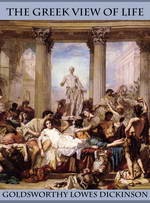 The Greek View of Life
The Greek View of Life
“With the Greek civilisation beauty perished from the world. Never again has it been possible for man to believe that harmony is in fact the truth of all existence.”This elegantly-written work provides a splendid introduction to the Greeks of the classic period: how they thought, wrote, and organised their lives and loves. Although it dates from the 1890s, there is very little about it that has dated. To its author’s credit, the subject of “Greek love” is dealt with in a sane and factual context - despite the judicial assassination of Oscar Wilde going on in the background... | |
By: Antonio Colmenero de Ledesma (d. 17th century) | |
|---|---|
 Chocolate: or, An Indian Drinke
Chocolate: or, An Indian Drinke
The Author sings the praises of Chocolate. “By the wise and Moderate use whereof, Health is preserved, Sicknesse Diverted, and Cured, especially the Plague of the Guts; vulgarly called _The New Disease_; Fluxes, Consumptions, & Coughs of the Lungs, with sundry other desperate Diseases. By it also, Conception is Caused, the Birth Hastened and facilitated, Beauty Gain’d and continued.” | |
By: Bruce Barton (1886-1967) | |
|---|---|
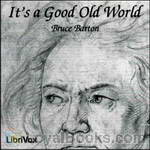 It's a Good Old World
It's a Good Old World
In this collection of essays, Bruce Barton, considered to be among the most influential advertising men of the 20th century, uses history, religion and current events of the 1920s to teach common sense ideals. From Jesus to Beethoven to Napoleon to Abraham Lincoln, Barton uses stories of great individuals to encourage the reader to make the most of life and at the same time to build strong character traits. | |
By: Henry W. Lucy (1845-1924) | |
|---|---|
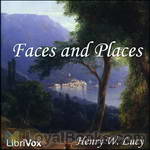 Faces and Places
Faces and Places
Faces and Places is a collection of articles on nineteenth century travel, events and personalities by the British journalist Henry Lucy, who wrote for the Daily News, a London newspaper. His open letter To Those About to Become Journalists rings as true today as when it was written.The first article, “Fred” Burnaby, includes a lively account of a balloon trip, while Night and Day on the Cars in Canada and Easter on Les Avants relate Lucy’s experiences of rail travel at that time. Other travel tales (A Night on a Mountain, Mosquitoes and Monaco, and Oysters and Arcachon) provide an insight into the Victorian Englishman’s attitude to Europe... | |
By: Robert Millikan (1868-1953) | |
|---|---|
 On the Elementary Electrical Charge
On the Elementary Electrical Charge
The experiments herewith reported were undertaken with the view of introducing certain improvements into the oil-drop method of determining e and N and thus obtaining a higher accuracy than had before been possible in the evaluation of these most fundamental constants. From the Physical Review, Vol. II, No. 2 | |
By: Dame Shirley (d.1906) | |
|---|---|
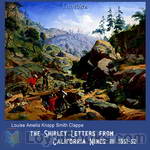 The Shirley Letters from California Mines in 1851-52
The Shirley Letters from California Mines in 1851-52
Louise Amelia Knapp Smith Clappe moved to California from Massachusetts during the Gold Rush of the mid-1800’s. During her travels, Louise was offered the opportunity to write for The Herald about her travel adventures. It was at this point that Louise chose the name “Shirley” as her pen name. Dame Shirley wrote a series of 23 letters to her sister Mary Jane (also known as Molly) in Massachusetts in 1851 and 1852. The “Shirley Letters”, as the collected whole later became known, gave true accounts of life in two gold mining camps on the Feather River in the 1850s... | |
By: Joseph Lister (1827-1912) | |
|---|---|
 On the Antiseptic Principle of the Practice of Surgery
On the Antiseptic Principle of the Practice of Surgery
Joseph Lister was born near London in 1827. He studied medicine at the University of London and pursued a career as a surgeon in Scotland. He became professor of Surgery in Glasgow and later (1877) at Kings College Hospital, in London. Lister’s contribution to the advancement of surgery cannot be overestimated. Before his work on antisepsis, wounds were often left open to heal, leading to long recoveries, unsightly scarring, and not infrequently amputation or death due to infection. Lister’s work enabled more wounds to be closed primarily with sutures, drastically reducing healing time, scarring, amputations, and deaths due to infection... | |
By: Charles McRae | |
|---|---|
 Fathers of Biology
Fathers of Biology
An account given of the lives of five great naturalists (Hippocrates, Aristotle, Galen, Vesalius and Harvey) will not be found devoid of interest. The work of each one of them marked a definite advance in the science of Biology. There is often among students of anatomy and physiology a tendency to imagine that the facts with which they are now being made familiar have all been established by recent observation and experiment. But even the slight knowledge of the history of Biology, which may be obtained from a perusal of this little book, will show that, so far from such being the case, this branch of science is of venerable antiquity... | |
By: Wright, Orville and Wilbur (1871-1948 / 1867-1912) | |
|---|---|
 The Early History of the Airplane
The Early History of the Airplane
The Brothers Orville (1871 - 1948) and Wilbur (1867 – 1912) Wright made the first controlled, powered and sustained heavier-than-air flight, on 17th December 1903. They were not the first to build and fly aircraft, but they invented the controls that were necessary for a pilot to steer the aircraft, which made fixed wing powered flight possible. The Early History of the Airplane consists of three short essays about the beginnings of human flight. The second essay retells the first flight: "This... | |
By: Oliver Wendell Holmes, Sr. (1809-1894) | |
|---|---|
 My Hunt After 'The Captain'
My Hunt After 'The Captain'
Holmes describes his frantic search through Civil War torn landscapes for his wounded son, the future Supreme Court Justice. Originally published in The Atlantic Magazine, 1862. Holmes, Sr. (1809 -1894) was an American physician, poet, professor, lecturer, and author. He was regarded by his peers as one of the best writers of the 19th century. His most famous prose works are the "Breakfast Table" series, which began with The Autocrat of the Breakfast Table (1858). He is also recognized as an important medical reformer. | |
By: Oliver Lodge (1851-1940) | |
|---|---|
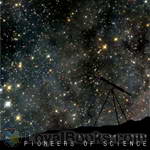 Pioneers of Science
Pioneers of Science
This book takes its origin in a course of lectures on the history and progress of Astronomy arranged for Sir Oliver Lodge in the year 1887. The first part of this book is devoted to the biographies and discoveries of well known astronomers like Copernicus, Brahe, Kepler, Galileo and Newton. In the second part, the biographies take a back seat, while scientific discoveries are discussed more extensively, like the discovery of Asteroids and Neptune, a treatise on the tides and others. | |
By: Hamilton Wright Mabie (1846-1916) | |
|---|---|
 Essays on Work and Culture
Essays on Work and Culture
The author investigates the world of work against a backdrop of culture. Each of the 25 essays focuses on one aspect of the topic. For example, the first essay, "Tool or Man?" looks at two views of man. One is that of strength as the provider of security. The other is that of aesthete, as an enthusiast of the arts or academics or religion. In our culture, provider of security is the winner every time. Man as a source of multiple talents cannot be allowed. As the author frames the argument, "Specialisation has been carried so far that it has become an organised tyranny... | |
By: George Morang (1866-1937) | |
|---|---|
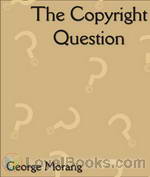 The Copyright Question
The Copyright Question
This is a letter to the Toronto Board of Trade regarding Canadian copyrights. Morang requested an appearance before the Toronto Board of Trade but was denied. This is his letter in response. He wished to make clear his position. | |
By: Elbert Hubbard (1856-1915) | |
|---|---|
 Mintage
Mintage
Elbert Hubbard is best known as the author of the "Little Journeys To The Homes of Famous People". These 11 short stores show the side of him that celebrated caring, friendship love among humans. The first describes how 5 frightened orphan children from a foreign country were cared for on a railroad journey of a thousand miles; all by strangers without any planning and without a word of English being spoken or needed. He observed caring human men and women of all ages doing whatever was necessary to see they reached their destination in whatever comfort could be provided... | |
By: Ida B. Wells-Barnett (1862-1931) | |
|---|---|
 Southern Horrors: Lynch Law In All Its Phases
Southern Horrors: Lynch Law In All Its Phases
Thoroughly appalled and sickened by the rising numbers of white-on-black murders in the South since the beginning of Reconstruction, and by the unwillingness of local, state and federal governments to prosecute those who were responsible, Ida Bell Wells-Barnett wrote Southern Horrors, a pamphlet in which she exposed the horrible reality of lynchings to the rest of the nation and to the world. Wells explained, through case study, how the federal government's failure to intervene allowed Southern states... | |
By: editor: Frank Munsey | |
|---|---|
 The Scrap Book Sampler
The Scrap Book Sampler
18 works -- two non-fic articles & one short fiction or poetry each -- from issues March, April, May, June, July, & August 1906 of The Scrap Book, Volume 1, edited by Frank Munsey. As he states in the editorial of the April 1906 issue (Vol 1, Iss 2) this was a sort of supplement to the editor's popular monthly, Munsey's Magazine. The Scrap Book is very like an American version of Punch with many short, often humorous articles interspersed with at least one short story, some poetry, and several longer non-fic pieces. The Scrap Book ran up to 1922. | |
By: John Addington Symonds (1840-1893) | |
|---|---|
 A Problem in Modern Ethics
A Problem in Modern Ethics
“Society lies under the spell of ancient terrorism and coagulated errors. Science is either wilfully hypocritical or radically misinformed.” John Addington Symonds struck many an heroic note in this courageous (albeit anonymously circulated) essay. He is a worthy Virgil guiding the reader through the Inferno of suffering which emerging medico-legal definitions of the sexually deviant were prepared to inflict on his century and on the one which followed. Symonds pleads for sane human values in... | |
By: William Cobbett (1763-1835) | |
|---|---|
 Rural Rides
Rural Rides
William Cobbett: 1763-1835 English farmer, journalist and politician. His book Rural Rides collects together the articles published in his Political Register between 1822 and 1826, reflecting conditions of farmers and labourers in the English countryside, together with his views on the necessary actions for remedy and the shortcomings of government in this regard. Although this sounds amazingly dry, his forthright personality, original views and conversational tone, as well as the startling relevance of many of his topics to current political and social issues, give Rural Rides the immediacy and liveliness of a 19th century blog. | |
By: Bradford Torrey (1843-1912) | |
|---|---|
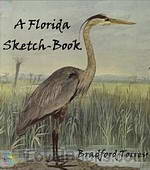 A Florida Sketch-Book
A Florida Sketch-Book
This is a series of late-19th Century essays about Florida’s flora & fauna written by a Massachusetts-based naturalist. | |
By: Douglas Fairbanks (1883-1939) | |
|---|---|
 Laugh and Live
Laugh and Live
Douglas Fairbanks, Sr. (May 23, 1883 – December 12, 1939) was an American actor, screenwriter, director and producer. He was best known for his swashbuckling roles in silent films such as The Thief of Baghdad, Robin Hood, and The Mark of Zorro. His book, Laugh and Live, is a book about positive virtues and advice for leading a good, healthy, and successful life. An advisory about this book is in order. Published in 1917, it was written at a time when “men went to work, women kept house, and supported their man”... | |
By: Clarence Darrow (1857-1938) | |
|---|---|
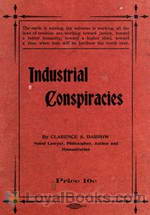 Industrial Conspiracies
Industrial Conspiracies
| |
By: Lord Redesdale (1837-1916) | |
|---|---|
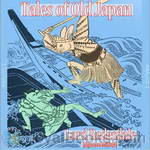 Tales of Old Japan
Tales of Old Japan
Tales of Old Japan by Lord Redesdale is a collection of short stories focusing on Japanese life of the Edo period (1603 - 1868). It contains a number of classic Japanese stories, fairy tales, and other folklore; as well as Japanese sermons and non-fiction pieces on special ceremonies in Japanese life, such as marriage and harakiri, as observed by Lord Redesdale. The best know story of these is "The Forty-seven Ronins" a true account of samurai revenge as it happened at the beginning of 18th century Japan... | |
By: Agnes Repplier (1855-1950) | |
|---|---|
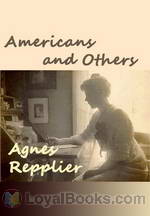 Americans and Others
Americans and Others
A collection of sometimes biting, always clever commentaries on some of life's foibles -- as apt today as when Ms. Repplier wrote them in 1912. Though less know to modern readers, Repplier was in her prime ranked among the likes of Willa Cather. Note: Section 13 contains the word niggards. I put it in print here so that it will not be mistaken for a racial epithet when heard. (written by Mary Schneider) | |
By: Kate M. Foley | |
|---|---|
 Five Lectures on Blindness
Five Lectures on Blindness
The [five] lectures were written primarily to be delivered at the summer sessions of the University of California, at Berkeley and at Los Angeles, in the summer of 1918. . . they are the outgrowth of almost a quarter of a century spent in work for the blind, and were written from the standpoint of a blind person, seeking to better the condition of the blind. They were addressed not to the blind, but to the seeing public, for the benefit that will accrue to the blind from a better understanding of their problems. (Extract from the Forward by Milton J. Ferguson) | |
By: Izaak Walton (1593-1683) | |
|---|---|
 The Compleat Angler
The Compleat Angler
The Compleat Angler is a celebration of the art and spirit of fishing in prose and verse. Walton did not profess to be an expert with the fly, but in the use of the live worm, the grasshopper and the frog "Piscator" could speak as a master. There were originally only two interlocutors in the opening scene, "Piscator" and "Viator"; but in the second edition, as if in answer to an objection that "Piscator" had it too much in his own way in praise of angling, he introduced the falconer, "Auceps," changed "Viator" into "Venator" and made the new companions each dilate on the joys of his favourite sport. | |
By: Margaret Fuller (1810-1850) | |
|---|---|
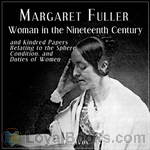 Woman in the Nineteenth Century and Kindred Papers Relating to the Sphere, Condition, and Duties of Women
Woman in the Nineteenth Century and Kindred Papers Relating to the Sphere, Condition, and Duties of Women
Margaret Fuller (1810-1850) was an American feminist, writer, and intellectual associated with the Transcendentalist movement. Her book Woman in the Nineteenth Century (1845) is considered the first major feminist work in the United States. Her life was short but full. She became the first editor of the transcendentalist journal The Dial in 1840, before joining the staff of the New York Tribune under Horace Greeley in 1844. By the time she was in her 30s, Fuller had earned a reputation as the best-read person in New England, male or female, and became the first woman allowed to use the library at Harvard College... | |
By: Mary H. Northend (1850-1926) | |
|---|---|
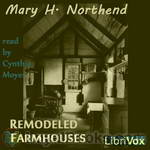 Remodeled Farmhouses
Remodeled Farmhouses
"There is a certain fascination connected with the remodeling of a farmhouse. Its low, raftered interior, its weather-beaten exterior, never fail to appeal. Types vary with the period in which they were built, but all are of interest. In this collection, which has been pictured with great care, pains have been taken to show as many different types as possible, so that the student will be able to find numerous interesting details that can be incorporated into his contemplated remodeling." [opening lines of Preface] | |
By: Mírzá Abu’l-Fadl Gulpáygání (1844-1914) | |
|---|---|
 The Brilliant Proof (Burhäne Lämé) in reply to an attack upon the Bahai Revelation by Peter Z. Easton
The Brilliant Proof (Burhäne Lämé) in reply to an attack upon the Bahai Revelation by Peter Z. Easton
“In these days,” writes the renowned Bahá’í scholar, Mírzá Abu’l-Fadl, “which are the latter days of 1911, A. D. and the early days of 1330 A. H., I have seen a curious article which astonished me. What did I see? I find that one of the missionaries of the Protestant sect, who accounts himself among the learned men of the twentieth century, a helper of the pure religion of Christ and one of the civilized and cultured occidentals, by name, Peter Z. Easton, has been so provoked by jealousy... | |
By: Thomas Browne | |
|---|---|
 Religio Medici and Hydriotaphia
Religio Medici and Hydriotaphia
Religio Medici (The Religion of a Doctor) sets out Sir Thomas Browne's spiritual testament as well as being an early psychological self-portrait. In its day, the book was a European best-seller. It was published in 1643 by the newly-qualified physician, and its unorthodox views placed it swiftly upon the Papal Index Librorum Prohibitorum in 1645. Although predominantly concerned with Christian faith, the Religio also meanders into digressions upon alchemy, hermetic philosophy, astrology, and physiognomy... | |
By: Walter W. Bryant (1865-1923) | |
|---|---|
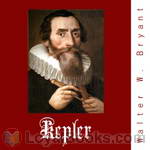 Kepler
Kepler
This biography of Johannes Kepler begins with an account of what the world of astronomy was like before his time, then proceeds to a look at his early years. Two chapters deal with his working relationship with Tycho Brahe. These are followed by a look at Kepler's laws and his last years. | |
By: Aubertine Woodward Moore (1841-1929) | |
|---|---|
 For Every Music Lover
For Every Music Lover
A series of essays for music lovers, covering many topics. From music appreciation, to violin and symphony, music education, to piano and, in fact, the very origins of music, there is sure to be something for everyone. | |
By: Various | |
|---|---|
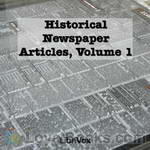 Historical Newspaper Articles
Historical Newspaper Articles
Public Domain newspaper articles in the US span a period of nearly two and a half centuries. Subjects, styles, period, publisher, and length vary greatly. This collection is a sampling of twenty such articles including one from the Journal de Paris. | |
By: Unknown | |
|---|---|
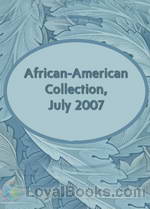 African-American Collection, July 2007
African-American Collection, July 2007
This collection recognizes Black History Month, February 2007. Two excellent resources for public domain African American writing are African American Writers (Bookshelf) and The Book of American Negro Poetry, edited by James Weldon Johnson. Johnson’s collection inspired the Harlem Renaissance generation to establish a firm African-American literary tradition in the United States. | |
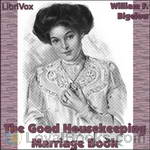 The Good Housekeeping Marriage Book
The Good Housekeeping Marriage Book
A collection of articles from Good Housekeeping magazine, The Good Housekeeping Marriage Book focuses on the subject of marriage. With instructions and advice from courtship to raising children, this collection aims to assist those with questions and concerns surrounding marriage and the ensuing relationship. Published in 1938. | |
By: Various | |
|---|---|
 U.S. Historical Documents
U.S. Historical Documents
The Articles of Confederation: On November 15th, 1777 The Articles of Confederation became the first constitution of the United States, though not yet ratified by the thirteen original colonies. Ratification of the Articles took place almost three and a half years later on March 1st, 1781. The purpose of the articles was to create a confederation of sovereign states with a weak central government; thus allowing state governments to wield most of the power. It wasn’t long before the need for a stronger federal government was realized which led to the Articles being replaced by the United States Constitution... | |
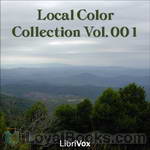 Local Color Collection
Local Color Collection
In this celebration of diversity, learn about the myriad histories and cultures behind our volunteers. | |
By: Unknown | |
|---|---|
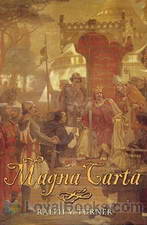 Magna Carta
Magna Carta
The original document is in Latin so this can only be a fairly rough approximation of the actual content. The text used is the first version in the Gutenberg collection. – Magna Carta is the most significant early influence on the long historical process that has led to the rule of constitutional law today. Magna Carta was originally created because of disagreements between the Pope, King John and his English barons over the rights of the King. Magna Carta required the king to renounce certain rights and respect certain legal procedures and to accept that the will of the king could be bound by law. | |
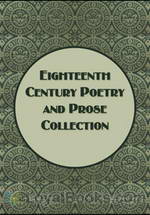 Eighteenth Century Poetry and Prose Collection
Eighteenth Century Poetry and Prose Collection
A collection of 48 prose and poetry selections written principally in the 18th Century. These works of world literature are written in the English language or are in English translation. | |
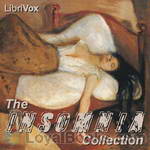 Insomnia Collection
Insomnia Collection
Soporific dullness is in the ear of the listener, and what’s tedium incarnate to one person will be another person’s passion and delight. However, it is hoped that at least one from the range of topics here presented will lull the busy mind to a state of sweet sleep. Introduction by Cori Samuel. | |
By: Charles Dickens (1812-1870) | |
|---|---|
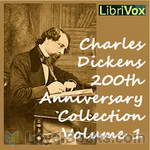 Charles Dickens 200th Anniversary Collection Vol. 1
Charles Dickens 200th Anniversary Collection Vol. 1
The Charles Dickens 200th Anniversary Collection comprises short works - fiction, essays, poetry, letters, magazine articles and speeches - and each volume will be a pot pourri of all genres and periods of his writing. This first volume is released on Dickens' 200th birthday, February 7th 2012. Further volumes will follow during the anniversary year.Volume 1 includes short stories including, amongst others, The Holly Tree, the first part of Holiday Romance and three pieces from Mugby Junction.Some... | |
By: Unknown | |
|---|---|
 British & American Periodical Articles 1852-1905
British & American Periodical Articles 1852-1905
A dozen assorted articles from British and American periodicals, including The Atlantic Monthly, Punch, The Chicago Record-Herald, Chambers’s Edinburgh Journal, Lippincott’s Magazine of Popular Literature and Science, The Library, St. Nicholas, American Missionary, The Great Events by Famous Historians, and The Continental Monthly. | |
By: Plato (424/423 BC - 348/347 BC) | |
|---|---|
 Apology
Apology
The Apology of Socrates is Plato's version of the speech given by Socrates as he unsuccessfully defended himself in 399 BC against the charges of "corrupting the young, and by not believing in the gods in whom the city believes, but in other daimonia that are novel" (24b). "Apology" here has its earlier meaning (now usually expressed by the word "apologia") of speaking in defense of a cause or of one's beliefs or actions (from the Ancient Greek ἀπολογία). | |
By: Various | |
|---|---|
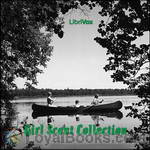 Girl Scout Collection
Girl Scout Collection
These articles, pamphlets, and stories relating to the Girls Scouts of America touch on the history, activities, ideals, and traditions of this remarkable girls' organization. Though some of the articles appear redundant, they were selected to represent a contemporary view spanning five years of the organization's early popularity (1917-1921). Of significance are the detailed descriptions of Girl Scout involvement in war work during what is now known as World War I. Girl Scouts were prepared through their training for merit badges to be independent, resourceful, reliable, and helpful... | |
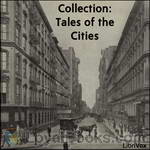 Collection: Tales of the Cities
Collection: Tales of the Cities
This is a collection of city stories, fiction or non-fiction, in English and published before 1923. Contributions have been chosen by the reader himself. | |
By: Anonymous | |
|---|---|
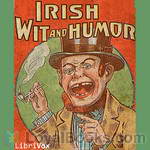 Irish Wit and Humor
Irish Wit and Humor
Excerpted anecdotes from the biographies of Swift, Curran, O'Leary and O'Connell, relating humorous snippets of politics in 18th and 19th century Ireland. For some these may be poignant in addition to being humorous and for others they may be humorous in addition to being poignant. ( | |
By: Charles W. Diffin (1884-1966) | |
|---|---|
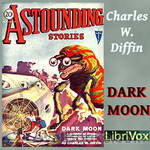 Dark Moon
Dark Moon
Mysterious, dark, out of the unknown deep comes a new satellite to lure three courageous Earthlings on to strange adventures. | |
By: Lloyd Eshbach (1910-2003) | |
|---|---|
 The Gray Plague
The Gray Plague
End of the world sci-fi tale borrows heavily from H.G. Wells' WOTW and In The Days of the Comet -- looks like fun ! | |
By: A. A. Milne (1882-1956) | |
|---|---|
 The Sunny Side
The Sunny Side
The Sunny Side is a collection of short stories and essays by A. A. Milne. Though Milne is best known for his classic children's books, especially Winnie The Pooh, he also wrote extensively for adults, most notably in Punch, to which he was a contributor and later Assistant Editor. The Sunny Side collects his columns for Punch, which include poems, essays and short stories, from 1912 to 1920. Wry, often satirical and always amusingly written, these pieces poke fun at topics from writing plays to lying about birdwatching. They vary greatly in length so there is something for everyone. | |
By: Various | |
|---|---|
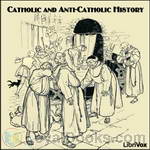 Catholic and Anti-Catholic History
Catholic and Anti-Catholic History
G.K. Chesterton and James Walsh join Hilaire Belloc in an energetic rollout of the means by which history becomes propaganda, to the damage, not only to truth, but to the human soul. | |
By: Arnold Bennett (1867-1931) | |
|---|---|
 Self and Self-management: Essays about Existing
Self and Self-management: Essays about Existing
Bennett's essays always provide food for thought and bring a wry smile to the lips. Human nature, it appears, changes little over the ages, and Bennett's writing stands the test of time, though in the case of some of the essays in this eclectic collection, it is well to remember that they were written at the time of the First World War and the fight for women's suffrage. | |
By: Saki (1870-1916) | |
|---|---|
 The Toys of Peace
The Toys of Peace
This is the fifth collection of short stories by Saki (H.H. Munro), and was published posthumously in 1923. Even so, many of the stories are quite up to the standard of those collected earlier. | |
By: William Hazlitt | |
|---|---|
 The Plain Speaker: Opinions on Books, Men, and Things
The Plain Speaker: Opinions on Books, Men, and Things
The Plain Speaker: Opinions on Books, Men, and Things is a posthumous collection of essays by William Hazlitt, organized by his grandson, William Carew Hazlitt. The book contains some of Hazlitt's more famous essays that hadn't been previously published in book format. | |
By: Various | |
|---|---|
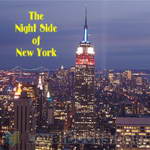 The Night Side of New York
The Night Side of New York
This nonfiction collection of sketches, by "members of the New York press," takes the reader on a tour of 1866 New York City after dark, with stops along the way to vividly depict scenes ranging from the splendid to the squalid - but focusing largely on the latter! | |
By: David Hilbert (1862-1943) | |
|---|---|
 Mathematical Problems
Mathematical Problems
Lecture delivered before the International Congress of Mathematicians at Paris in 1900 and subsequently published in the Bulletin of the American Mathematical Society Vol. 8 (1902), 479-481. | |
By: G. K. Chesterton (1874-1936) | |
|---|---|
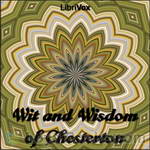 Wit and Wisdom of Chesterton
Wit and Wisdom of Chesterton
In this collection, Bevis Hillier has put together some of Chesterton's essays in "The Defandant", "Varied Types" and "Tremendous Trifles". These 12 pieces were chosen to giving a peek into the margins of Chesterton's work and give a sense of the distinctive flavor of his mind. They were also chosen with an eye to showing what a complex and fascinating character he was. | |
By: Mark Twain | |
|---|---|
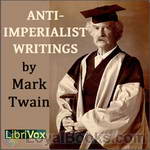 Anti-imperialist writings
Anti-imperialist writings
This audiobook is a collection of Mark Twain's anti-imperialist writings (newspaper articles, interviews, speeches, letters, essays and pamphlets). | |
By: A. A. Milne (1882-1956) | |
|---|---|
 Once a Week
Once a Week
A collection of short stories by famed Winnie the Pooh author, A.A. Milne. This charmingly humorous work from Milne's earlier writing period was first published in Punch magazine. | |
By: John Stuart Mill (1806-1873) | |
|---|---|
 Three Essays on Religion
Three Essays on Religion
The Three Essays on Religion were written at different times during Mill's life, and only published after his death. The first two, 'Nature' and 'The Utility of Religion' date from the 1850s - the period between the publication of 'The Principles of Political Economy' and 'On Liberty'. The third longer essay, 'Theism' was written between 1868 and 1870. The three essays were published posthumously in 1874. | |
By: Harl Vincent (1893-1968) | |
|---|---|
 Astounding Stories 02, February 1930
Astounding Stories 02, February 1930
This is the second issue of the classic science fiction Astounding Magazine. It contains the finale of The Beetle Horde by Victor Rousseau, as well as stories by Harl Vincent, Charles Willard Diffin, Hugh B. Cave, Sophie Wenzel Ellis, Sterner St. Paul, Anthony Pelcher and Captain S. P. Meek. | |
By: Unknown | |
|---|---|
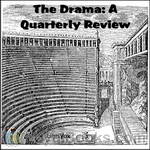 The Drama: A Quarterly Review
The Drama: A Quarterly Review
This is a collection of theatrical essays from the American quarterly The Drama, including six non-fiction works -- 3 profiles: Schnitzler, Andreyev, and O'Neill, and 3 articles: Characterization vs Situation, The Actor in England, & The Evolution of The Actor. | |
By: Washington Irving (1783-1859) | |
|---|---|
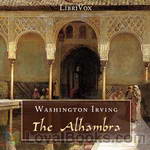 The Alhambra: A Series of Tales and Sketches of the Moors and Spaniards
The Alhambra: A Series of Tales and Sketches of the Moors and Spaniards
This is a collection of essays, verbal sketches, and stories by Washington Irving. Irving lived at the Alhambra Palace while writing some of the material for his book. In 1828, Washington Irving traveled from Madrid, where he had been staying, to Granada, Spain. At first sight, he described it as "a most picturesque and beautiful city, situated in one of the loveliest landscapes that I have ever seen." He immediately asked the then-governor of the historic Alhambra Palace as well as the archbishop of Granada for access to the palace, which was granted because of Irving's celebrity status... | |
By: Dreiser, Theodore (1871-1945) | |
|---|---|
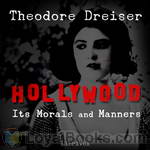 Hollywood: Its Morals and Manners
Hollywood: Its Morals and Manners
Serialized in Shadowland from November 1921 to February 1922, Hollywood: Its Morals and Manners is Theodore Dreiser's shocking four part expose on the motion picture industry. In it, he shares his observations from his extended stay in Los Angeles, and gives us an intimate look at the seedier underside of Hollywood. | |
By: Various | |
|---|---|
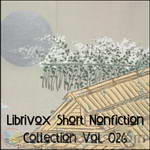 Short Nonfiction Collection Vol. 026
Short Nonfiction Collection Vol. 026
A collection of short nonfiction works in the public domain. The selections included in this collection were independently chosen by the readers, and the topics encompass history, travel, mathematics, humor, philosophy, and nature. | |
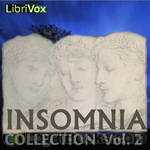 Insomnia Collection, Vol. 2
Insomnia Collection, Vol. 2
Soporific dullness is in the ear of the listener, and what's tedium incarnate to one person will be another person's passion and delight. However, it is hoped that at least one from the range of topics here presented will lull the busy mind to a state of sweet sleep. (Introduction by Cori Samuel) | |
By: A. A. Milne (1882-1956) | |
|---|---|
 Not That It Matters
Not That It Matters
More of the witty, wry, and deliciously wicked essays and articles written by Milne. Most people know him as the creator of Winnie The Pooh, but he worked for many years as editor of Punch Magazine and these are some of his best. Not That It Matters is a collection of over 40 of these short stories and articles. Not That It Matters collects his columns for Punch, which include poems, essays and short stories, from 1912 to 1920. Most of his writing pokes fun, both gentle and not so gentle at a variety of topics... | |
By: Stephen Leacock (1869-1944) | |
|---|---|
 My Discovery of England
My Discovery of England
"In the course of time a very considerable public feeling was aroused in the United States and Canada over this state of affairs. The lack of reciprocity in it seemed unfair. It was felt (or at least I felt) that the time had come when some one ought to go over and take some impressions off England. The choice of such a person (my choice) fell upon myself. By an arrangement with the Geographical Society of America, acting in conjunction with the Royal Geographical Society of England (to both of whom I communicated my proposal), I went at my own expense."And from thence follow the impressions of Canadian political economist and humourist, Stephen Leacock, after a lecturing visit to England. | |
By: William Alexander MacKay (1842-1905) | |
|---|---|
 Zorra Boys at Home and Abroad, or, How to Succeed
Zorra Boys at Home and Abroad, or, How to Succeed
By Zorra, in the following sketches, is meant a little district in Oxford county, Ontario, some ten miles square, composed of part of East and part of West Zorra, and containing a population of about fourteen hundred. It was settled about the year 1830, chiefly by Highlanders from Sutherlandshire, Scotland.Within the last forty years there have gone from this district over one hundred young men who have made their mark in the world. With most of these it has been the writer's good fortune to be personally and intimately acquainted; and companionship with some of them has been to him a pleasure and a benefit... | |
By: William Kingdon Clifford | |
|---|---|
 The Ethics of Belief
The Ethics of Belief
This is an essay on decision biases and a critique on prejudices, neatly written and thought provoking. | |
By: Agnes Repplier (1855-1950) | |
|---|---|
 In Our Convent Days
In Our Convent Days
With her usual wit and charm, Ms. Repplier recalls her days at Eden Hall, the Convent of the Sacred Heart in Torresdale, north of Philadelphia. She shares the highlights (and some of the low lights) of her time there. Perhaps this sharp eye, nurtured by her willfulness and independent spirit, was the reason she was not invited to return to Eden after her second year. Not only Catholics or boarding school alumnae will find this book entertaining; anyone who went to school or who looks back on their childhood will see their own experience somewhere in this memoir. | |
By: Jessie Benton Frémont | |
|---|---|
 The Will and the Way Stories
The Will and the Way Stories
Simply put, this is a book of 9 short vignettes each of which describes a different scenario which demonstrates the age old adage: 'where there's a will, there's a way'. | |
By: Anthony Pelcher (1897-1981) | |
|---|---|
 Astounding Stories 04, April 1930
Astounding Stories 04, April 1930
The fourth issue of Astounding Stories continues Ray Cummings serial "Brigands of the Moon", along with pulp sci-fi stories by Capt. S. P. Meek, Anthony Pelcher and other authors. | |
By: Harl Vincent (1893-1968) | |
|---|---|
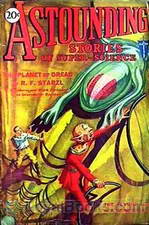 Astounding Stories 08, August 1930
Astounding Stories 08, August 1930
Issue eight of this seminal science-fiction magazine CONTENTS Murder Madness by Murray Leinster - the conclusion of this novel Earth the Maurader by Arthur J. Burks - Part 2 of a 3 Part novel as well as short Stories The Planet of Dread by R.F. Starxl, The Lord of Space by Victor Rousseau, The Second Satellite by Edmund Hamilton, Silver Dome by Harl Vincent and The Flying City by H. Thompson Rich | |
By: Thomas Newbigging (1833-1914) | |
|---|---|
 Lancashire Characters and Places
Lancashire Characters and Places
An eclectic collection of essays on late 19th-century Lancashire culture and life, including essays on the poets John Critchley Prince and Edwin Waugh. Thomas Newbigging was born in Glasgow and died in Knutsford, Chesshire, living in between in Rossendale, Pernambuco, and Manchester. A gas manager by profession and writer-historian by inclination, his two major works were the Handbook for Gas Engineers and Managers (1889) and the History of the Forest of Rossendale (1893). | |
By: Murray Leinster (1896-1975) | |
|---|---|
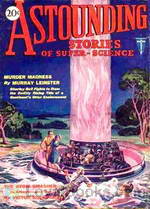 Murder Madness
Murder Madness
Murder Madness! Seven Secret Service men had completely disappeared. Another had been found a screaming, homicidal maniac, whose fingers writhed like snakes. So Bell, of the secret "Trade," plunges into South America after The Master--the mighty, unknown octopus of power whose diabolical poison threatens a continent! | |
By: Captain S. P. Meek (1894-1972) | |
|---|---|
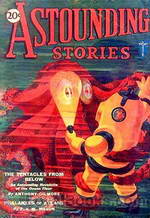 Astounding Stories 14, February 1931
Astounding Stories 14, February 1931
This issue includes "Werewolves of War" by D. W. Hall, "The Tentacles from Below" by Anthony Gilmore, "The Black Lamp" by Captain S. P. Meek, "Phalanxes of Atlans" by F. V. W. Mason, and contues with "The Pirate Planet" by Charles W. Diffin, | |
By: Sewell Peaslee Wright (1897-1970) | |
|---|---|
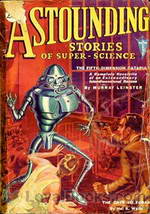 Astounding Stories 13, January 1931
Astounding Stories 13, January 1931
This issue contains "The Dark Side of Antri" by Sewell Peaslea Wright, "The Sunken Empire" by H. Thompson Rich, "The Gate to Xoran" by Hal K. Wells, "The Eye of Allah" by C. D. Willard, "The Fifth-Dimension Catapult" by Murray Leinster, and "The Pirate Planet[' by Charles W. Diffin. | |
 Astounding Stories 07, July 1930
Astounding Stories 07, July 1930
Issue seven of this seminal science-fiction magazine | |
By: Jack Williamson (1908-2006) | |
|---|---|
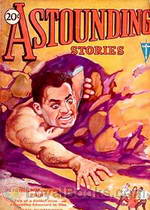 Astounding Stories 15, March 1931
Astounding Stories 15, March 1931
This issue includes "When the Mountain Came to Miramar" by Charles W. Diffin, "Beyond the Vanishing Point" by Ray Cummings, "Terrors Unseen" by Harl Vincent, the conclusion of "Phalanxes of Atlans" by F. V. W. Mason, and "The Meteor Girl" by Jack Williamson. | |
By: Charles Willard Diffin (1884-1966) | |
|---|---|
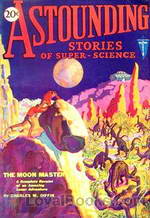 Moon Master
Moon Master
Through Infinite Deeps of Space Jerry Foster Hurtles to the Moon—Only to be Trapped by a Barbaric Race and Offered as a Living Sacrifice to Oong, their Loathsome, Hypnotic God. | |
By: Lydia Maria Child (1802-1880) | |
|---|---|
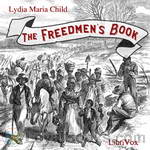 The Freedmen's Book
The Freedmen's Book
Lydia Maria Child, an American abolitionist, compiled this collection of short stories and poems by former slaves and noted activists as an inspiration to freed slaves. In her dedication to the freedmen, she urges those who can read to read these stories aloud to others to share the strength, courage and accomplishments of colored men and women. In that spirit, this recording aims to gives that voice a permanent record. As in the original text, the names of the colored authors are marked with an "x". | |
By: Harl Vincent (1893-1968) | |
|---|---|
 Astounding Stories 10, October 1930
Astounding Stories 10, October 1930
Issue no. 10 of the magazine brings you:- Stolen Brains by Captain S.P. MeekThe Invisible Death by Victor Rousseau Prisoners on the Electron by Robert H. Leitfred Part 2 of Jetta of the Lowlands by Ray Cummings An Extra Man by Jackson Gee along with the Readers' Corner and interesting scientific facts | |
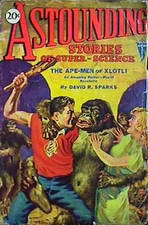 Astounding Stories 12, December 1930
Astounding Stories 12, December 1930
This issue includes "Slaves of the Dust" by Sophie Wenzel Ellis, Part B of "The Pirate Planet" by Charles W. Diffin, "The Sea Terror" by Captain S. P. Meek, "Gray Denim" by Harl Vincent, and "The Ape-Men of Xlotli" by David R. Sparks. | |
By: Various | |
|---|---|
 Punch, or the London Charivari
Punch, or the London Charivari
MANUAL OF SURGERY, OXFORD MEDICAL PUBLICATIONSBY ALEXIS THOMSON, F.R.C.S.Ed.PREFACE TO SIXTH EDITION Much has happened since this Manual was last revised, and many surgical lessons have been learned in the hard school of war. Some may yet have to be unlearned, and others have but little bearing on the problems presented to the civilian surgeon. Save in its broadest principles, the surgery of warfare is a thing apart from the general surgery of civil life, and the exhaustive literature now available on every aspect of it makes it unnecessary that it should receive detailed consideration in a manual for students... | |
 The Illustrated War News
The Illustrated War News
THE ILLUSTRATED WAR NEWS, N.B.--REMOVE INSETTED LEAFLET, DEC. 30 1914.THE GREAT WAR. In reviewing the events of the last week throughout the world-wide area of war, let us begin with the Dark Continent, where everything went in our favour--very brilliantly so. First of all, then, we may now be said to have completed our conquest of the German Cameroon country by taking possession of the whole of the railway which runs northward from Bonabari, and is now in the hands of our troops. A... | |
By: George Bernard Shaw (1856-1950) | |
|---|---|
 Quintessence of Ibsenism (Version 2)
Quintessence of Ibsenism (Version 2)
InThis is an essay providing an extended analysis of the works of Norwegian playwright Henrik Ibsen and of Ibsen's critical reception in England. Shaw uses this "exposition of Ibsenism" to illustrate the imperfections of British society, using the idea of an imaginary "community of a thousand persons," divided into three categories: Philistines, Idealists, and the lone Realist. The main discussion revolves around Ibsen's recurring topic of the strong character holding out against social hypocrisy, while stating in his essay's final sentence that the quintessence of Ibsenism is that "there is no formula." ( Michele Eaton) | |
By: S. Baring-Gould (1834-1924) | |
|---|---|
 Curiosities of Olden Times
Curiosities of Olden Times
This book is a collection of 17 gems of random knowledge, such as what women are made of and the philosopher's stone, written in Baring-Gould's own style. | |
By: An Anti-Slavery Convention of American Women (1837-1837) | |
|---|---|
 Address to Free Colored Americans
Address to Free Colored Americans
The first Anti-Slavery Convention of American Women met in New York City in May, 1837. Members at the Convention came from all walks of life and included such prominent women as Mary Parker, Lucretia Mott, the Grimke sisters, and Lydia Maria Child. One outcome of this important event was a statement of the organization’s role in the abolitionist movement as expressed in AN ADDRESS TO FREE COLORED AMERICANS, which begins: “The sympathy we feel for our oppressed fellow-citizens who are enslaved... | |
By: Various | |
|---|---|
 Short Nonfiction Collection Vol. 028
Short Nonfiction Collection Vol. 028
A collection of short nonfiction works in the public domain. The selections included in this collection were independently chosen by the readers, and the topics encompass history, slavery, science, education, humor, philosophy, nature and baseball. | |
By: Lafcadio Hearn (1850-1904) | |
|---|---|
 Exotics and Retrospectives
Exotics and Retrospectives
Lafcadio Hearn, born 1850 in Greece, went to Japan when he was 40 years old and became a Japanese citizen only 6 years later. His writings about Japan from the beginning of the Meiji era, when the country was just opening to the West, remain among the most important explanations of Japanese culture. This book contains in the first part, "Exotics", his observations of and personal insights into Japan. For example, Fuji no Yama tells about him climbing the highest mountain in Japan; and A Question in the Zen Texts, Literature of the Dead, and Of Moon Desire try to explain Buddhist teachings... | |
By: Various | |
|---|---|
 Short Nonfiction Collection Vol. 031
Short Nonfiction Collection Vol. 031
Fifteen short nonfiction works in the public domain, independently chosen by the readers. Topics include the Faust Legend, Stephen Crane, Sundials and the Statue of Liberty. | |
By: James Elroy Flecker (1884-1915) | |
|---|---|
 Collected Prose
Collected Prose
Best remembered for his poetry, James Elroy Flecker was also a playwright, novelist and prose writer. This collection of his idiosyncratic prose writings includes The Last Generation (a short science fiction story), short sketches, a dialogue, and several critical studies. | |
By: Giacomo Leopardi (1798-1837) | |
|---|---|
 Essays and Dialogues
Essays and Dialogues
"We would no more choose to feed the minds of our countrymen and women with the despairing utterances of the pessimist poet, than we would their bodies with hasheesh. Such melancholy as his clothed in such eloquent words may be the luxury of the idle; it is poison to those who have work to do in the world. It shuts out hope, the very spring of energy; it makes the cheerful steady pursuit of duty a thing utterly beyond human powers. For we can none of us stand alone. Either in human or divine love we must find the mainspring of all life worth living... | |
By: Henry Cabot Lodge (1850-1924) | |
|---|---|
 Theodore Roosevelt; An Address Delivered Before The Congress Of The United States
Theodore Roosevelt; An Address Delivered Before The Congress Of The United States
A biographical encomium delivered on the occasion of Roosevelt's death. Theodore "T.R." Roosevelt, Jr. (1858 – 1919) was an American author, naturalist, explorer, historian, and politician who served as the 26th President of the United States. He was a leader of the Republican Party (the "GOP") and founder of the Progressive Party. He is noted for his exuberant personality, range of interests and achievements, and his leadership of the Progressive Movement, as well as his "cowboy" persona and robust masculinity... | |
By: Various | |
|---|---|
 Short Nonfiction Collection, Vol. 035
Short Nonfiction Collection, Vol. 035
Eighteen short nonfiction works in the public domain, independently chosen by the readers. Topics include how to swim, Navajo silversmithing, the sun, begonias and ferns, Martin Luther, U.S. Presidents Eisenhower and Nixon, Captain Cook's exploration of Botany Bay, General James Wolfe, and Moravian missionaries in Labrador. | |
By: Lucius Annaeus Seneca (4-65) | |
|---|---|
 Moral Letters, Vol. I
Moral Letters, Vol. I
"Among the personalities of the early Roman Empire there are few who offer to the readers of to-day such dramatic interest as does Lucius Annaeus Seneca, the author of the Epistles which are translated in this volume. ... In these letters, it is impossible to ignore the advance from a somewhat stiff and Ciceronian point of view into the attractive and debatable land of what one may fairly call modern ideas. The style of the Epistles is bold, and so is the thought." (from the Introduction) | |
By: Robert G. Ingersoll (1833-1899) | |
|---|---|
 Selected Interviews with Robert G. Ingersoll, Volume 2
Selected Interviews with Robert G. Ingersoll, Volume 2
A controversial lecturer and famous orator of the mid 1800's, Ingersoll railed against the absurdities of the Bible and cruelties of orthodox Christianity, tirelessly supported the arts, education, science, women’s rights, abolition, home, family, children, and human liberty, whose creed was: “Happiness is the only good, Reason the only torch, Justice the only worship, Humanity the only religion, and Love the only priest.” He was often attacked from the pulpit and in the press. Here are 30 more published interviews (from among hundreds), in which Ingersoll spoke extemporaneously, bitingly, sometimes hilariously, on a wide range of topics, with newspaper reporters of the day... | |
By: Stuart Johnson Reid (1848-1927) | |
|---|---|
 Selected Essays of Samuel Johnson
Selected Essays of Samuel Johnson
This is a volume of selected essays by "the great master of reason" Samuel Johnson. The most famous exerpts from The Rambler, The Adventurer and The Idler are included, covering a vast range of topics. | |
By: Various | |
|---|---|
 Negro Problem
Negro Problem
This is a collection of essays, edited by Booker T. Washington, representative of what historians have characterized as "racial uplift ideology." These and other similar narratives of the time were a reaction to the gradual erosion of the African-American's civil rights across the United States that began during Reconstruction. | |
By: Herbert Allen Giles (1845-1935) | |
|---|---|
 Chinese Sketches
Chinese Sketches
Herbert Giles was in the diplomatic service in China from 1867 to 1893. His frank observations on Chinese culture and people form the basis of these short essays, published in 1876. On his retirement, he returned to England and served as the Chair of Chinese at Cambridge for 35 years. | |
By: Various | |
|---|---|
 Short Nonfiction Collection, Vol. 039
Short Nonfiction Collection, Vol. 039
Eighteen short nonfiction works in the public domain, independently chosen by the readers. Topics include literary figures--Alice Mangold Diehl, Harriet Beecher Stowe, and Arthur Hugh Clough; philosophers--Hegel, Kierkegaard; religious thinkers--Martin Luther, Cotton Mather; political leaders--Thomas Jefferson, John F. Kennedy; important documents--the Constitution of Japan (1946), the Virginia Statute for Religious Freedom; moments in history--the Battle of the Crater, the Dred Scott Decision; historical figures--the Pseudo Dionysius and Xenophon; and, lastly, shopper's tips for watermelons and cantaloupes. | |